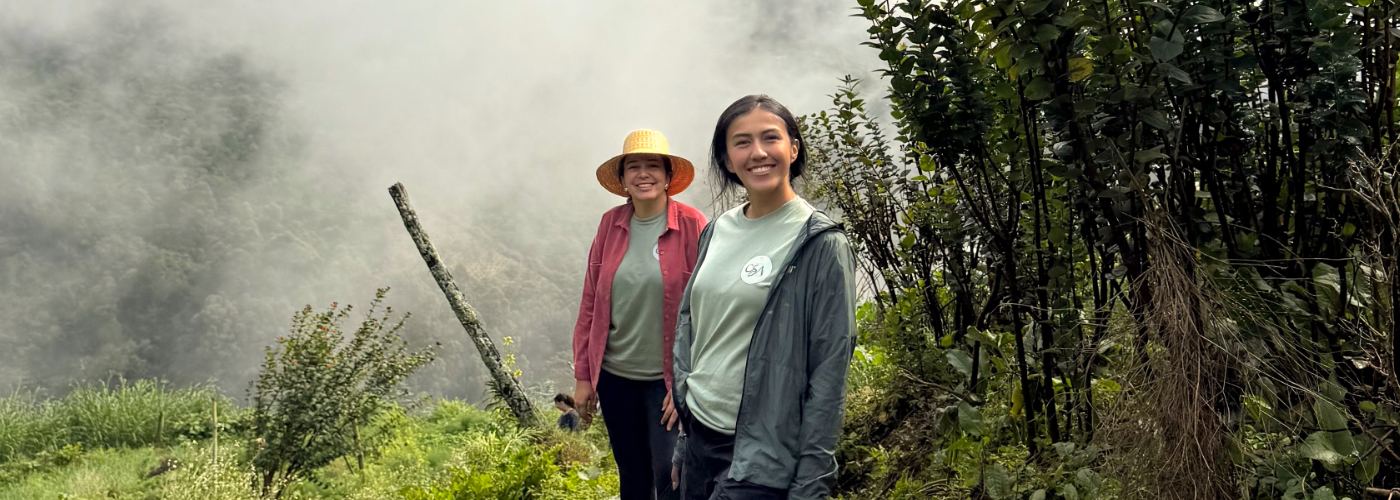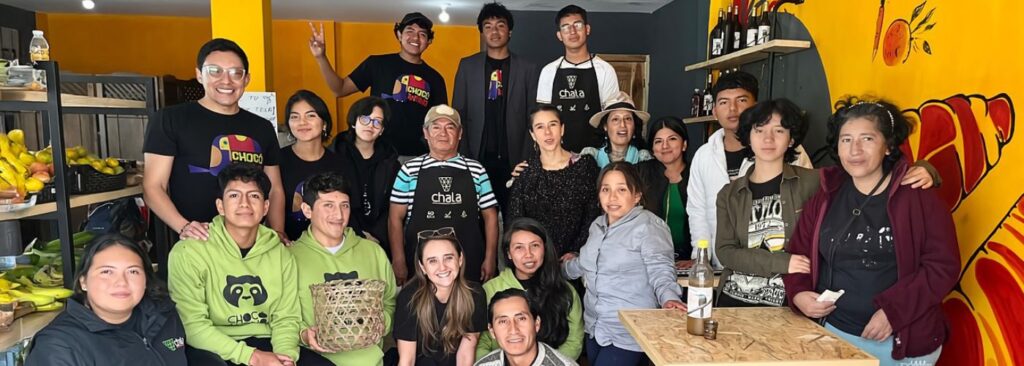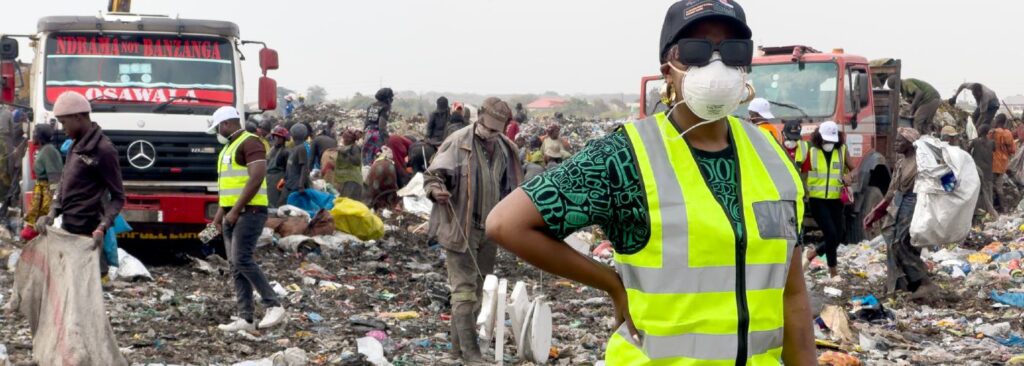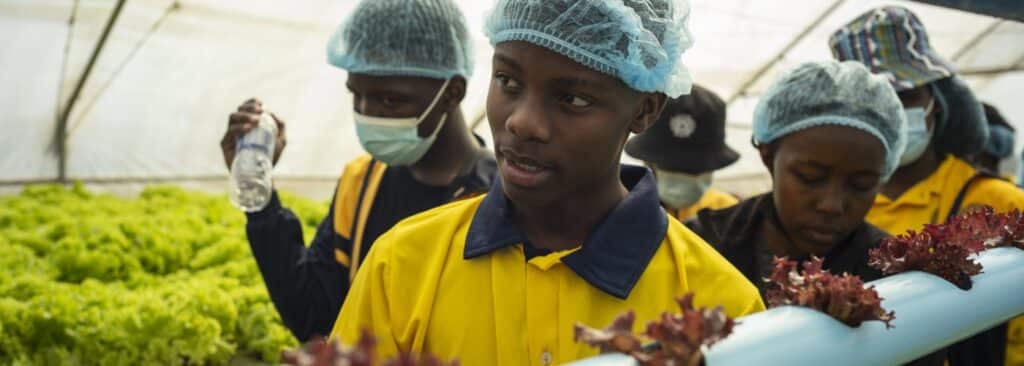The land speaks and the city listens
The story of Natalia Luna from Nariño, Colombia
Sometimes, all it takes is a closer look to understand the true value of things. For Natalia Luna, that moment came when she reconnected with her roots.
“I imagine an urban future with cities that are more connected to themselves, to the land, to other people.”
Born in Nariño, a region in southern Colombia, Natalia grew up immersed in the rural and Indigenous memories inherited from her grandparents. Although her professional path led her to study chemical and biological engineering, and to begin her career as a Coffee Quality Analyst, it was her direct contact with rural life that introduced her to another kind of science: the science of the bonds that sustain life.
That encounter took place through the network of Communities that Sustain Agriculture (CSA), an innovative and deeply human model that is gaining momentum in Colombia. CSAs operate through solidarity-based, direct agreements between farmers and consumers – called co-farmers – who commit to paying a fixed fee, usually monthly, that guarantees stable income for farmers throughout the season. In exchange, co-farmers receive a regular basket of fresh, agroecological, and local products directly from the farm, without intermediaries.
This mechanism not only allows for more reliable production planning and reduced losses but also promotes sustainable practices and creates a close bond between those who farm and those who consume. In addition, many CSAs encourage the exchange of letters, postcards, and messages between farmers and co-farmers, sharing information about planting, the weather, the history of the farm, and the value of food. Thus, consumption ceases to be anonymous and becomes a living, conscious, and transformative relationship.
An alternative form of trade
Today, as Communications Director for the CSA network, Natalia promotes this alternative form of trade and consumption as a real solution to systemic problems: the disconnection between the countryside and the city, the instability of rural incomes, lack of knowledge about the origin of food, and unhealthy eating habits in cities.
And what seemed like a utopia – fair prices, stable incomes, reduced waste, and lasting relationships – becomes viable. Young people like Natalia are showing that another way of interacting with food systems is not only possible but already happening.
A different point of view
“Very few of us have the opportunity to look into the eyes of the farmer who provides our food,” says a co-farmer. But when it happens, this gaze is transforming cities.
CSAs in Colombia are growing, coordinating short market chains, improving rural quality of life, and offering responsible consumption alternatives in cities. This is a social innovation that responds to global challenges with deeply local solutions, sustained by care, mutual commitment, and community organization.
Natalia is part of a generation that no longer fears returning to the countryside or using their knowledge to support regenerative models. Young professionals like her are crossing boundaries between the ancestral and the urban, between technique and affection.
Her vision is clear: “I imagine an urban future with cities that are more connected to themselves, to the land, to other people. With people in cities that make conscious decisions, that know what and from whom they are feeding themselves. But also, a countryside with guarantees, where young people want to stay and can make a good living from their work.”
Young people like Natalia embody the essence of the Urban Futures Program: leaders who emerge from the territories and integrate knowledge, memory, and innovation to transform systems from within. They are the ones who demonstrate that the future is not a distant promise, but an active possibility that is cultivated from close by, with commitment, meaning, and rooting.









